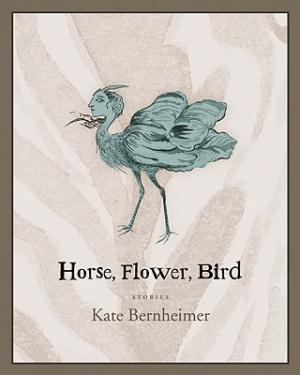Horse, Flower, Bird: Stories

Full of self-pity and self-loathing, Kate Bernheimer’s stories in Horse, Flower, Bird are not all of what being a girl is about. This is essential to remember, because fairytales, for all their unnecessarily flowery language and lurid fantasy, taught us all who to be. Fairytales, like the more adult fables, are instructional devices; stay away from the woods, do not talk to strangers, truth and love will prevail… As corny as they always are, they imbue us with an elementary moral compass. It was their function and their rationale, it is why parents allow their children to watch Sleeping Beauty a million times into the wee hours of the night. However Bertheimer's fairytales, while unconventional and enticing, do not convey any distinct moral messages. They are enchanting stories, but not fairytales; there is nothing to be learned from them. They are simply fantastical.
Each story reveals a different experience of the world. They convey a distinct approach to, and perception of, reality. One from the point of view of an autistic person, for example, another from that of a tulip bulb. Each of the central characters is distinguishably female, not only by the pronouns used but by the point of view on the universe—as a sister or daughter.
The experiences of the characters are amplified by the subtle touch of the Southern Gothic Bertheimer infuses into her tales: The ironic views of the love/hate relationship between sisters related in “A Star Wars Tale”, the sardonic liberation of the exotic dancer in “A Cageling Tale” and the supernaturally natural reality of autism in “A Garibaldi Tale.” It is worth remembering, however, in drawing the comparison, that Southern Gothic writings were often unforgiving of the women they portrayed.
Thinking of the Fall of the House of Usher, womanhood is not a flattering state of affairs; Berthimer's characters are perhaps closer to the women of The Glass Menagerie in character—not malicious but pitiable, and in this case pitied even by the author. You would not care to be in any of these stories, and worse, you do not learn from them as from their ostensible peers in either genre associated with them. They are well written little pieces, but they leave you reaching for Poe or the Brothers Grimm instead.